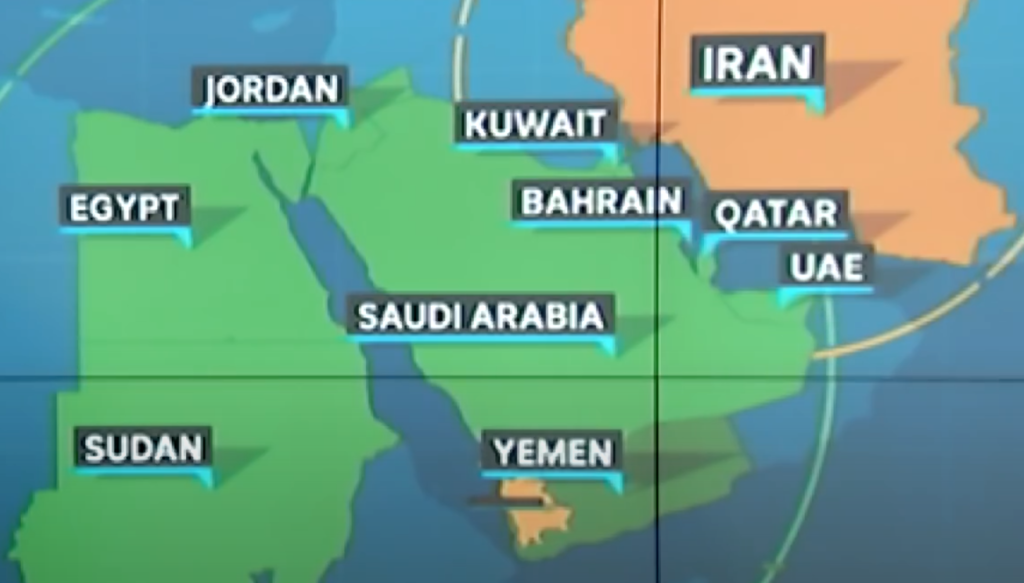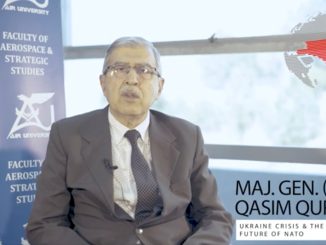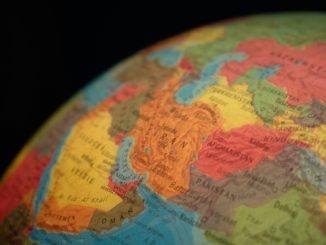
Notably in Pakistan, the notion of a regional ‘Iran versus Saudi Arabia’ struggle for influence is a popular framework adhered to by global affairs analysts. It holds that Iran and the Saudis involve themselves very proactively in the affairs of Middle Eastern states with the goal of thwarting the other’s objectives, causing proxy wars and military conflicts.
However, the approach falls short in numerous ways of explaining contemporary turmoil in the troubled Middle East region. The Yemen War, ongoing since March 2015, is the most recent and striking example of the ‘Iran versus Saudi Arabia’ framework applied onto a major conflict in contradiction of both its basic facts and broader regional and global relevance.
With special regard to the origins and motives of Yemen’s Houthis, the ‘Iran versus Saudi Arabia’ label when applied to the Yemen War produces factual errors and fallacies. Behind these errors and fallacies lie crucial facts about the armed group and political-religious organization, without which its true contemporary geopolitical significance cannot begin to be understood.
The Houthi uprising: Iranian proxies or independent actors? The idea that the Houthis’ September 2014 takeover of Sanaa from Saudi client President Aburrabuh Hadi was an Iranian move is fairly entrenched among analysts. The Houthis are portrayed as mere sock puppets in this regard, armed and directed by Tehran. However, this contradicts revelations made during the early days of the war regarding the Houthis.
US and European career intelligence officials and diplomats immediately voiced scepticism about Saudi claims that the Houthis acted on Iran’s behalf. Pointing out that the Houthis did not follow mainstream Twelver Shi’ism as did Iran and its allies, they also added that the Houthis were not reliant on Iranian weapons for their military campaign, which given the large quantity of weapons already in Yemen was easily self-sustainable.
Additionally, Huffington Post reported in April 2015, citing US officials familiar with the Houthi movement, that Iran had even warned the Houthis against taking over Sanaa. Despite the US condemning the Houthis and militarily assisting the Saudis, there was no acknowledgement by countries aside from the Saudis and Gulf Cooperation Council (GCC) that the Houthis were Iranian proxies.
In fact, as far back as 2009, Wikileaks-obtained cables from the US State Department described the Houthis’ weapons source as the Yemeni black market – and not Iran.
If not Iran, then who caused the Houthi uprising? After the Yemen War began, the Houthis established ties with Iran and began receiving weapons from it. However, given the lack of serious ties with Iran prior to the war, the question arises, what motives drove the Houthis to seize Sanaa?
The answer lies in the mass discontent against leaders propped up by the GCC, despite repeatedly making a mockery of the Yemeni reforms process.
As a major Zaydi politico-religious entity in Yemen founded in the 1990s, the Houthis were a significant part of the overall Yemeni mass-protests of 2011. Directed at then-President Ali Abdullah Saleh, who had ruled for over two decades, the protests induced a GCC reaction who then introduced the November 2011 GCC Initiative for power transition in Yemen. Both the government and opposition approved of it.
The UNSC-backed Initiative mandated that Saleh step down and hand Hadi, his vice president for 18 years, presidential duty. Hadi was tasked with holding presidential elections within 60 days, setting up a committee to draw a new referendum-approved constitution with parliamentary elections following a new Yemeni government.
However, Hadi held a rigged, one-man ‘election’ with himself as the only candidate and became the new president in February 2012. This caused opposition resentment to fester further, with intra-factional and government-protestor violence erupting frequently as Hadi secured a two-year term. The Houthis and protestors affiliated with former president Ali Abdullah Saleh, who opportunistically decided to join the opposition, had called for a boycott of the election.
Even at the end of his term, Hadi who enjoyed GCC backing, refused to relinquish his post and the GCC Initiative-mandated elections for a new parliament never took place. The Houthis together with Saleh loyalists – now dominating Hadi’s own ruling party, the General People’s Congress (GPC) – stormed Sanaa in September 2014 and established full control of the city by January 2015 with the seizure of the presidential palace.
Hadi resigned, but ‘retracted’ the resignation after managing to flee south to Aden city in February. Exemplifying his lack of domestic support and legitimacy, the GPC which possessed a majority in Yemen’s Parliament declared its refusal to accept him as president again.
Hadi then fled to Riyadh, Saudi Arabia, with the Saudis initiating an aerial bombing campaign against the Houthis on 25 March 2015.
The Houthis as an Iran-aligned but independent new regional player. As the Yemen War finally shows signs of winding down, the Houthis can lay claim to a victory of sorts while the ‘coalition’ which sought to crush them has failed. Through years of massive aerial bombardment and ground assaults led by GCC-hired foreign and local tribal mercenaries, they impressively sustained control of Yemen’s major population centres and strategic assets such as its Red Sea ports.
To go with this, the Houthis have taken unmistakable steps toward assuming a broader regional profile. Their offer to release captured Saudi air force personnel in exchange for Saudi Arabia releasing imprisoned members of the Palestinian resistance organization, Hamas, resident in the kingdom, is a prime example of this and was received positively by the Palestinians.
The Houthis’ rhetoric regarding Israel’s oppression of the Palestinians along with a general emphasis on the issue of al Quds (Jerusalem) is also poised with major momentum, given the ongoing alliance of Israel with their GCC adversaries.
All in all, the Houthis are a reality in Yemeni politics not reliant on Iran for their objectives but aligned with it now more so than ever – thanks to Iran’s rivals.
![]()




Be the first to comment